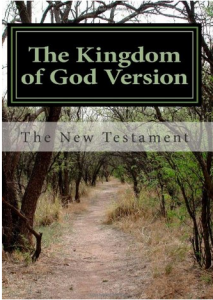podcast 368 – Dr. Dustin Smith on the Plural of Majesty in the Hebrew Bible
Understanding “the plural of majesty” in the Hebrew Bible.
Understanding “the plural of majesty” in the Hebrew Bible.
This time, some questions that may occur to you about Clarke’s views on the Trinity.
 As pretty well summarized here by unitarian Theophilus Lindsey.
As pretty well summarized here by unitarian Theophilus Lindsey.
In the year 1694 began the great contest concerning the Trinity, betwixt two celebrated doctors of the church, Sherlock and South; each of them reputed and reputing himself orthodox, and each of them espoused by learned and powerful partisans.
Dr. Sherlock expressly asserted, that the three persons in the Trinity are three distinct, infinite Minds or Spirits, and three individual Substances. Dr. South held only one infinite eternal Mind or Spirit, with three Somethings that were not three distinct Minds of Substances, but three modes, faculties, attributes, relations, relative properties, subsistances, as there were variously denominated. Dr. Sherlock was accused, and with great justice, if words have any meaning, of polytheism, or holding three Gods. Dr. South, on the other hand, came under the imputation of explaining away the Trinity, and falling into the Sabellian or Unitarian system: and accordingly some of the Socinians took advantage of the Doctor’s explication of the doctrine of the church, and declared in their writings, that the should not be backward to give their approbation to the Liturgy and the Articles, if that was the kind of Trinity which the language therein used was intended to inculcated.
The university of Oxford, to whom Sherlock was obnoxious on account of his political principles, declared forRead More »the fate of “social” trinitarianism in late 17th c. England (Dale)
 I think I’ve met only two people who have translated the whole New Testament from the original Koine Greek to some modern language. One was an American evangelical missionary, who’d translated the New Testament into some obscure tribal language from South America. The other was the Englishman Ray Faircloth, who runs the biblicaltruthseekers website. (Some of his materials are also available here.)
I think I’ve met only two people who have translated the whole New Testament from the original Koine Greek to some modern language. One was an American evangelical missionary, who’d translated the New Testament into some obscure tribal language from South America. The other was the Englishman Ray Faircloth, who runs the biblicaltruthseekers website. (Some of his materials are also available here.)
In both cases, I was impressed. What an acheivement, and what a weight it must be, to try to effectively and accurately render what one regards as the most important texts in human history, the communications of God to humankind.
I was privileged to be able to interview Ray Faircloth a few days ago near Atlanta, Georgia, where we were both in town for a conference. Maybe at a later date I’ll post a few representative passages from his translation.
Congratulations on the publication of your translation of the New Testament, The Kingdom of God Version. How long did this take you?
This took three and half years.
Was that full time?
No, it was in blocks of time, so that you’d get so far, and you’d need to move on to another subject, and come back to it at a later time.
What, in your view, is most distinctive about your Kingdom of God Version?
It’s hard to say one thing, but much of it was attempt to get rid
Read More »Interview with Ray Faircloth, translator of the Kingdom of God Version of the New Testament
Still waiting for substantial replies to my Challenge to evangelical “Jesus is God” apologists. Some have worried that the meaning of “God” is somehow problematic here. There is an ambiguity here, but it is deliberate, and is a virtue of the argument. You can take “God” here to be either the Father (as in the NT) or the Trinity (as in trinitarian traditions) – either… Read More »“God” in the Challenge argument
Is the “Granville Sharp Rule” + 2 Peter 1:1 and Titus 2:13 “fatal to unitarianism”?
Our fictional story was necessary, to help us think about some important distinctions about referring terms. It is easy to forget that “Trinity” was once a puppy, a neologism. But it was. It was born some time in the second half of the second century. We don’t know who coined it, but the earliest surviving mention of it is by Theophilus, bishop of Antioch (d.… Read More »Flocanrib and the ambiguity of the word “Trinity”
“The dissolution of a mythology is no less natural a process than its growth, and is indeed secured the moment we have discovered how it has grown…”
A podcast listener recently emailed me to ask (emphases added): I won’t hide that I’m a happy Trinitarian and yet that I’m thoroughly enjoying your podcast since it provokes my theology and forces me to actually think about why I believe what I believe. This is a healthy check I think. I am puzzled though about why the numerical issue is so important. If Jesus… Read More »reader question on the Trinity and numerical sameness
Did Dr. Brown adequately rebut my argument from six NT facts?
I’ve seen this passage quoted by at least three of my favorite Christian philosophers. Unfortunately, they’ve misattributed it to the famous English antitrinitarian John Biddle (also spelled Bidle) (1615-62). I believe it was Keith Yandell who found it in this old book, where it is misattributed to Biddle. Why did the theologian Leonard Hodgson make this mistake? I’ve seen a copy of the book, the… Read More »“an Error in counting…” Who wrote this?
Do I ignore “the” being/Person distinction?
 Princeton philosopher Thomas Kelly in a paper on the epistemology of disagreement (i.e. what the reasonable response when we find the people just as smart and informed etc. as us disagree on some important matter):
Princeton philosopher Thomas Kelly in a paper on the epistemology of disagreement (i.e. what the reasonable response when we find the people just as smart and informed etc. as us disagree on some important matter):
In principle, we ought to be able to give due weight to the available reasons that support a given view, even in the absence of actual defenders of the view who take those reasons as compelling. But in practice, the case for a view is apt to get short shrift in the absence of any actual defenders. The existence of actual defenders can serve to overcome our blindspots by forcefully reminding us just how formidable the case is for the thesis that they defend… But the case for a given view itself is no stronger in virtue of the fact that that view has actual defenders…
Thomas Kelly, ” The Epistemic Significance of Disagreement,” p. 31 (in pre-print).
At first this reminded me of a proverb I’ve often thought of when reading some catholic theologian who has evidently never put the slightest effort into understanding the overall case for unitarianism:
“The first to speak in court sounds right–until the cross-examination begins.” Proverbs 18:17 (NLT)
But this is actually a different point than Kelly’s. A better courtroom analogy for Kelly’s point is:Read More »Arguing against no one
“I had come to this belief truly just through studying the Word.”
Is it the foundational commitment of biblical unitarians that Scripture must be inoffensive to human reason?
Here’s a very interesting interview with probably the greatest living Christian philosopher. Like many of my peers, I’m a big fan. Read the whole thing to see why I picked a teapot. Here are some relevant bits (with my own bolding): I take atheism to be the belief that there is no such person as the God of the theistic religions. The first being of… Read More »Parsing Plantinga: is there such a person as God?
A pound of misunderstanding and irrelevance together with a little pinch of relevant but inadequate response.
As we all know, the ideal medium for theological debate is a music video posted on youtube. In the past, we’ve seen the mighty Winterband strking a blow for Oneness Pentecostalism. Trinitarians rapped back with some impressive rhymes. Now, unitarians enter the fray. If I had to pick a theology based solely on the musical quality of these entries (which of course is a great… Read More »Trinity vs. Oneness vs. unitarianism Youtube shootout
In round 1, Burke explains that he’s a biblical unitarian, not a “rationalist” or “universalist” unitarian. Further, he confesses that: Jesus Christ is the Son of God, but not God himself and The Holy Spirit is the power of God, but not God himself. Further, The Bible is the inspired Word of God and the sole authoritative source of Christian doctrine and practice. He neither… Read More »SCORING THE BURKE – BOWMAN DEBATE – Burke 1